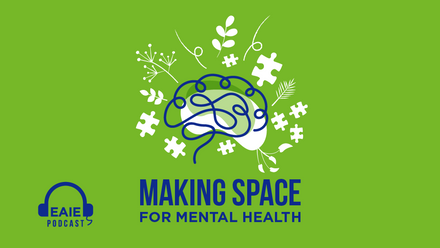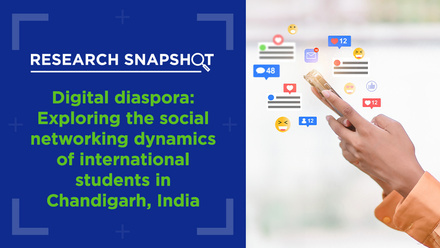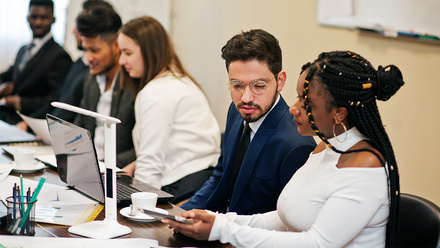A holistic view of international student support

Too often, the concepts of culture and identity on campus are approached in far too simplistic a manner. The ‘billiard ball’ conceptualisation of cultures – as self-enclosed national entities clashing against each other – has an adverse impact on international students, who are too often perceived to be lacking in relation to the host culture rather than having a rich identity of their own.
With student and wider societal protests continuing worldwide, there has never been a better time for higher education institutions and their staff to improve their understanding of international students and provide more holistic support.
As a practitioner-researcher specialising in student mobility, I’ve been struck by the recent emergence of a more realistic and critical understanding of international students among academics, but so far this has not been disseminated effectively to practitioners. In this blog post, I will provide a snapshot of some promising developments in perspectives on international students, and some implications for practice.
Transnational identities
It is far too common for a person’s culture to be regarded as homogeneous and synonymous with nationality, when the reality is much more dynamic. From the student perspective, it’s patronising and potentially discriminatory to be defined solely by your nationality. Worse still are the all-too-common staff misconceptions about a student’s nationality based on perceived physical appearance (and assumptions about key markets).
It is important to ensure that international students are not ‘othered’ by the services intended to support them
Fortunately, it’s increasingly recognised that international students are heterogeneous and have diverse identities and lived experiences. A more complex understanding of their lived realities is emerging, including their successes, problems, conflicts and efforts to navigate unfamiliar cultures. The experience of international students is embodied and performative: it is not merely a psychological process of adapting. There are growing calls to treat international students as ‘whole people’, and while they undoubtedly have greater challenges than home students, it is also important to ensure that they are not ‘othered’ by the services intended to support them.
Mobilities research shows that rather than progressing along a linear path of acculturation, international students develop hybrid transnational identities. These identities are complex and fluid, undergoing change through everyday intercultural interactions. This has very real practical implications: for example, we should avoid generalisations about how specific groups of students behave and learn.
Adapting to a new culture
The burden of ‘adaptation’ to a new culture and academic environment does not rest solely with the student. It is increasingly recognised that international students shouldn’t be seen as ‘in deficit’ in terms of skills and behaviours – they have valuable skills and alternative perspectives that need to be embraced and accommodated. This means that various support services – such as help with academic writing or study skills – need to attain an appropriate balance between developing skills and embracing difference. It also adds weight to calls to decolonise the curriculum.
International students shouldn't be seen as ‘in deficit’ in terms of skills and behaviours – they have valuable skills and alternative perspectives
International students are immersed in hybrid university or college cultures, which are different from national cultures. Mobile students interact with a diverse range of cultural others, including fellow international students. The internationalised university is “a fluid and dynamic space that is shaped by both local and global forces”. Orientation and socialisation activities should be underpinned by an understanding of these transnational and hybrid cultures.
Power relations
The practice of daily intercultural interactions is framed by discourses and power relations. International students are influenced by a range of discourses created by institutions, governments, the mass media and, increasingly, social media. These discourses are varied and often contradictory, from predatory recruitment practices, to discourses emphasising the benefits of being transnational, to those relating to immigration policy.
Terms such as ‘power relations’ may sound esoteric, but it’s about the impact of such discourses on everyday, ground-level experiences. Racism and discrimination towards international students is more common than we like to admit, and the vulnerability of some students can be increased by problematic discourses.
Everyday practices
Intercultural interactions in an unfamiliar environment are influenced by a wide range of factors, not just the attitudes, skills and behaviour of the student.
The everyday practices of international education are ‘performative’, and performative acts develop the identities of international students. Repeated practices – in the classroom, on campus or in the local area – determine what is considered natural and typical for particular identities.
Some repeated practices can help students to form identities that lead to positive and successful experiences
Why does this matter? Well, some repeated practices can help students to form identities that lead to positive and successful experiences. Conversely, practices can also create identities formed through negative stereotypes – particularly of race – that make some international students more precarious and vulnerable.
Making positive changes
Student mobility is a major life event that brings a combination of challenges and achievements. Support needs to be holistic and wider than study skills and practical matters.
With all this in mind, here are some tips for how to improve institutional practices:
- International students will differ in their emotional well-being and lived experiences – it is important to avoid generalising and assuming the ‘characteristics’ of students.
- International students should not be considered as ‘in deficit’ and in need of assimilation. Their cultures and perspectives need to be embraced and celebrated.
- Students differ in their identity and power, and some students will be in a more precarious position. Support needs to be available for vulnerable students, including those subjected to racism and discrimination.
- The identities of international students develop throughout their studies, and pastoral or welfare services should be able to support a positive transition.
- Success in a new academic environment is not just due to the attitudes, skills and behaviour of the international students themselves – they also need a conducive setting in terms of physical environment, support services and a decolonised curriculum.
- Institutions have a responsibility to encourage positive encounters among students and staff and need to take decisive action to challenge practices that can stereotype or marginalise particular groups of students, both inside and outside the classroom.
These suggestions can help institutions to get ahead of the curve as we move towards treating international students as individuals who, far from being ‘in deficit’, have a rounded identity and a great many skills and ideas to bring to the table. By taking a holistic view and avoiding generalisations, we can treat students with the respect they deserve – and help to combat the sort of discrimination that fuels much of the social unrest we see today.






